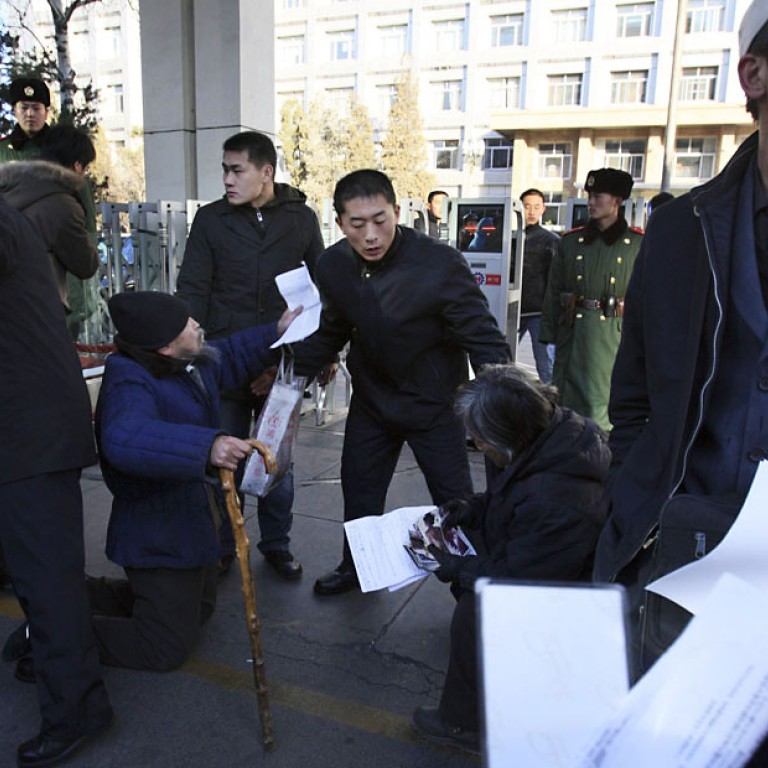
Hebei city authorities try to limit petitions in Beijing
Petitioners from Shijiazhuang, Hebei province, who protest at Tiananmen Square, the leadership compound of Zhongnanhai, or other politically sensitive areas of Beijing including foreign embassy districts will be punished, local authorities have announced.
Petitioners from Shijiazhuang, Hebei province, who protest at Tiananmen Square, the leadership compound of Zhongnanhai, or other politically sensitive areas of Beijing including foreign embassy districts will be punished, local authorities have announced.
The new guideline released after the Communist Party pledged to reform its notorious petitioning system in the recently concluded third plenum.
It said China would set up an online petitioning system and "strive to settle people's cases in a timely manner and at the local level", as well as announcing it would scrap the re-education-through-labour camps where petitioners were often detained.
Shijiazhuang's government stated on its official website last week that to petition at "unauthorised areas" in the capital would result in "administrative" penalities, which means petitioners could be detained for a maximum of 20 days if police do not press further charges.
To express grievances near authorised petition offices is also not safe. An earlier instruction from the Ministry of Public Security in July lists dozens of strictly banned actions such as placing wreaths, images of deceased people or even bodies near a handful of approved petition offices in Beijing.
It also said petitioners could be criminally liable if their behaviour "constituted crimes".
"I'm not sure if this regulation will become a boilerplate for other cities, but obviously it is illegal," said Si Weijiang , a prominent rights lawyer who has called for the petitioning system to be abolished.
"It has no legal basis and violates the principles and purposes of the rule of law."
He added that police in Shijiazhuang had no jurisdiction over petitioners in other cities.
"It is a tool to empower the local police to arrest petitioners easily, which is good for the local officials to maintain stability," Si said.
Shijiazhuang, the capital of Hebei, is only 300 kilometres from Beijing and petitioners can seek justice from the central authorities fairly easily.
Petitioning in the capital is usually seen as a last chance to obtain justice. In recent years, if a low number of petitioners made their way to the capital, it was seen as an indication of how well local officials were maintaining stability in their regions.
Petitioners departing for the capital found themselves frequently intercepted by local officials, police or even hired thugs. Many were detained illegally in "black jails", often shoddy hostels or warehouses on the outskirts of Beijing, before being sent home.
There have also been numerous reports of petitioners being physically abused.
